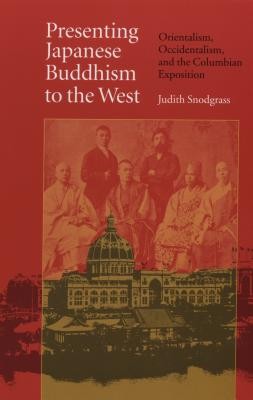
- We will send in 10–14 business days.
- Author: Judith Snodgrass
- Publisher: University of North Carolina Press
- ISBN-10: 0807854581
- ISBN-13: 9780807854587
- Format: 15.3 x 23.2 x 2.2 cm, softcover
- Language: English
Reviews
Description
Japanese Buddhism was introduced to a wide Western audience when a delegation of Buddhist priests attended the World's Parliament of Religions, part of the 1893 Columbian Exposition in Chicago. In describing and analyzing this event, Judith Snodgrass challenges the predominant view of Orientalism as a one-way process by which Asian cultures are understood strictly through Western ideas. Restoring agency to the Buddhists themselves, she shows how they helped reformulate Buddhism as a modern world religion with specific appeal to the West while simultaneously reclaiming authority for the tradition within a rapidly changing Japan.
Snodgrass explains how the Buddhism presented in Chicago was shaped by the institutional, social, and political imperatives of the Meiji Buddhist revival movement in Japan and was further determined by the Parliament itself, which, despite its rhetoric of fostering universal brotherhood and international goodwill, was thoroughly permeated with confidence in the superiority of American Protestantism. Additionally, in the context of Japan's intensive diplomatic campaign to renegotiate its treaties with Western nations, the nature of Japanese religion was not simply a religious issue, Snodgrass argues, but an integral part of Japan's bid for acceptance by the international community.
- Author: Judith Snodgrass
- Publisher: University of North Carolina Press
- ISBN-10: 0807854581
- ISBN-13: 9780807854587
- Format: 15.3 x 23.2 x 2.2 cm, softcover
- Language: English English
Japanese Buddhism was introduced to a wide Western audience when a delegation of Buddhist priests attended the World's Parliament of Religions, part of the 1893 Columbian Exposition in Chicago. In describing and analyzing this event, Judith Snodgrass challenges the predominant view of Orientalism as a one-way process by which Asian cultures are understood strictly through Western ideas. Restoring agency to the Buddhists themselves, she shows how they helped reformulate Buddhism as a modern world religion with specific appeal to the West while simultaneously reclaiming authority for the tradition within a rapidly changing Japan.
Snodgrass explains how the Buddhism presented in Chicago was shaped by the institutional, social, and political imperatives of the Meiji Buddhist revival movement in Japan and was further determined by the Parliament itself, which, despite its rhetoric of fostering universal brotherhood and international goodwill, was thoroughly permeated with confidence in the superiority of American Protestantism. Additionally, in the context of Japan's intensive diplomatic campaign to renegotiate its treaties with Western nations, the nature of Japanese religion was not simply a religious issue, Snodgrass argues, but an integral part of Japan's bid for acceptance by the international community.


Reviews